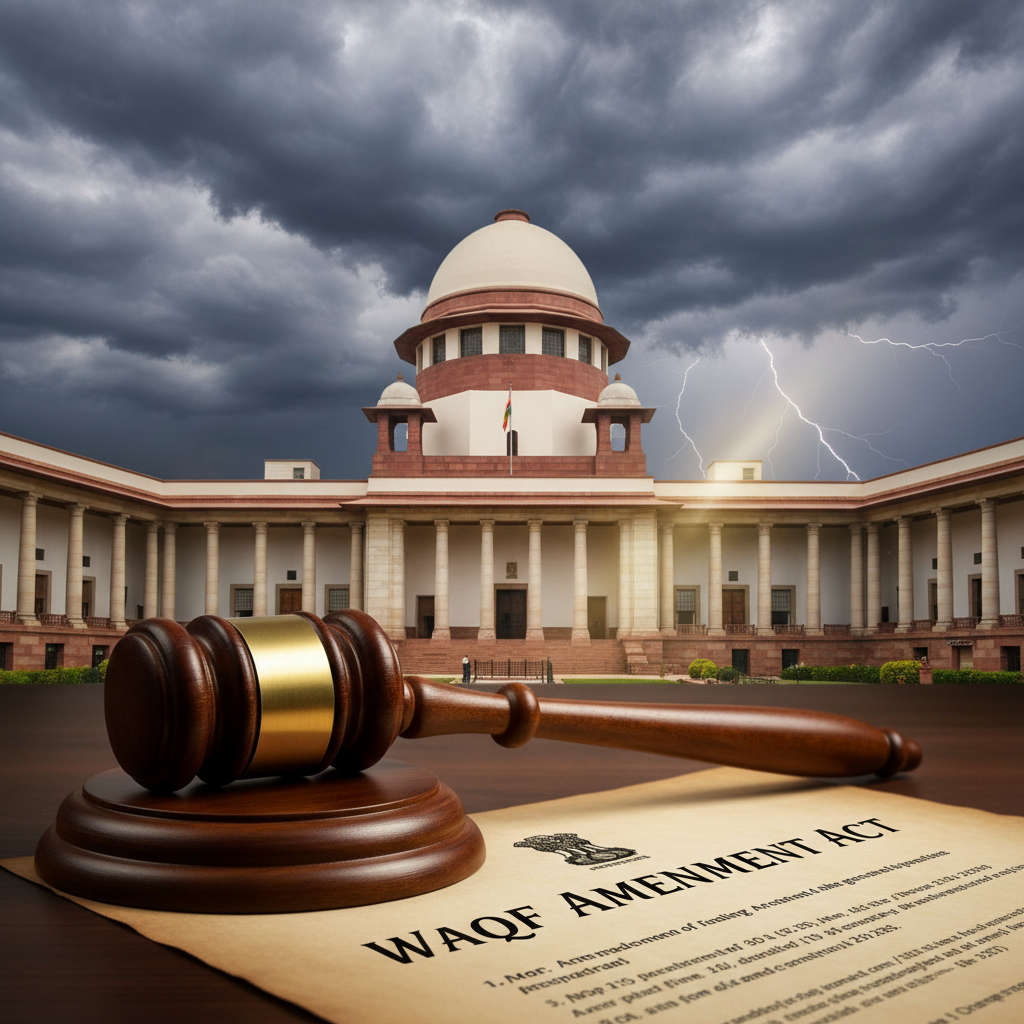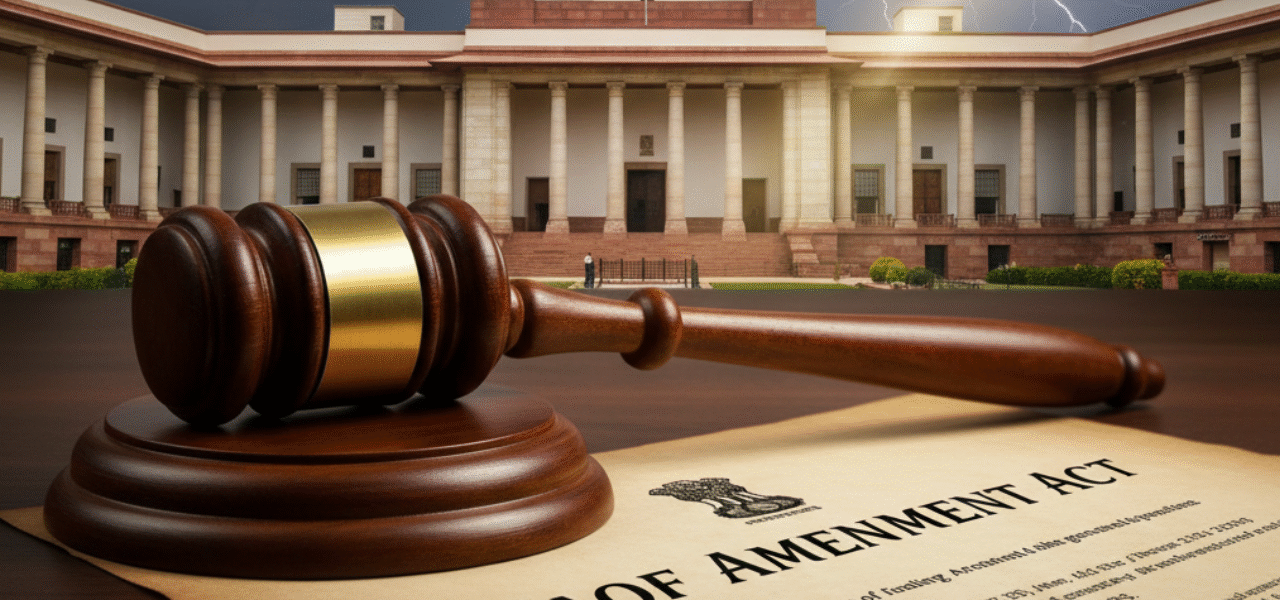Supreme Court Delivers Major Win for Fairness: Waqf Amendment Act Reined In, Some Provisions Blocked!
The Supreme Court of India, in its latest interim ruling on the Waqf Amendment Act, 2025, has refused to stay the entire amended law but has placed a hold on some of its new provisions. On the contentious issue of “waqf by user”—a practice that allowed property to become waqf solely through long-standing community use and without formal documentation—the Supreme Court has unequivocally upheld the government’s decision to abolish the provision, citing its history of misuse and encroachment on government land.
Overview of the Court’s Interim Ruling
The Supreme Court, led by Chief Justice B.R. Gavai and Justice Augustine George Masih, emphasised that a blanket stay on the entire Waqf Amendment Act was unwarranted, reiterating that the statutory presumption favours the constitutionality of legislative acts. However, the bench did find merit in arguments against some specific provisions and placed a temporary stay on those sections pending further legal scrutiny.
Stayed Provisions of the Waqf Amendment Act

- Five-Year Muslim Practice Rule: The requirement that only a person who has been a practising Muslim for at least five years may create or dedicate property as waqf (Section 3(1)(r)) has been stayed. The court held this rule unenforceable until state governments frame clear mechanisms to determine such practice.
- Collector’s Powers over Waqf Disputes: Provisions granting district collectors (or designated officers) the authority to inquire and determine whether a property claimed as waqf is actually government land have been suspended. The court found that entrusting executive officers with these judicial functions was contrary to the separation of powers. Relatedly, the provision stating that waqf status is lost simply on the initiation of such inquiry has also been stayed.
- Revenue Record Corrections: The parts of the law enabling such officers to order changes in revenue and waqf board records upon completion of their inquiry are stayed. Title determination, the court held, should remain with judicial forums.
“Waqf by User” Provision
- The Supreme Court clearly upheld the abolition of “waqf by user,” concurring with the government that the provision was consistently exploited to unlawfully claim government land by labelling it as waqf property through community usage patterns rather than through formal, legal dedication. The court stated that the amendment, “prima facie, cannot be said to be arbitrary,” and justified the legislature’s decision to address what it considered widespread misuse.
- This means that Muslims, or anyone seeking to register property as waqf, now must produce proper documentary proof of dedication and cannot simply claim waqf status based on community use. The idea that any property could be waqf “without any proof” has been formally put to rest by the Supreme Court’s interim order, which found the government’s deletion of this clause appropriate and not arbitrary.
Other Key Points of the Waqf Amendment Act
- The court capped the number of non-Muslim members allowed on Central and State Waqf Boards but refused to stay this representation, aiming to ensure the boards remain broadly reflective of the community they serve while adhering to constitutional mandates.
- These interim orders remain until the Supreme Court delivers its final verdict on constitutional challenges to the Amendment Act, which are still pending.
Final Status and Implications of the Waqf Amendment Act
- The Waqf Amendment Act, 2025, remains operational except for the specific provisions put on hold.
- The immediate effect is increased scrutiny and legal rigour in waqf property claims, ending the practice of acquiring waqf status for property through mere longstanding religious use (“waqf by user”) without supporting documentation.
- The outcome provides legal certainty to government and private property owners, addressing historical grievances related to land claims while protecting the rights of religious endowments within constitutional frameworks.
This Supreme Court order marks a significant shift in how waqf property can be claimed and managed in India, signalling an end to historically ambiguous and often contested land claims based on unproven assertions of religious use.
Waqf Amendment Act #SupremeCourtIndia #WaqfAmendmentAct #LandmarkJudgment #LegalReforms #PropertyRights #Judiciary #BreakingNews #IndiaNews #SocialJustice #LegalUpdate #ReligiousTrusts #RuleOfLaw #LatestVerdict #Transparency #GoodGovernance
Discover more from
Subscribe to get the latest posts sent to your email.











1 COMMENTS